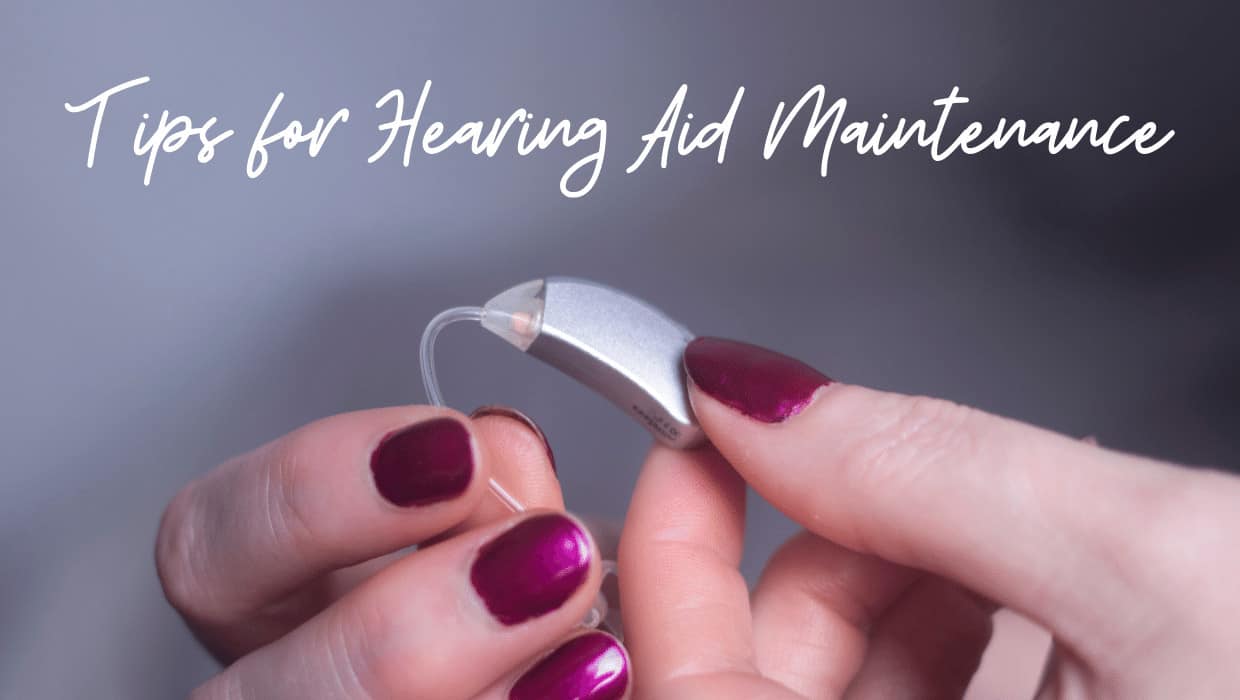Hearing aids are sensitive and powerful instruments. The hearing aids of today contain tiny computers that work overtime to provide crystal clear audio quality while also working to separate background noise from speech, aid in providing directional sound information, integrate with other devices, and provide masking sound therapy for tinnitus, all in a tiny package that sits in or around the ear.
The size and sensitivity of hearing aid components, along with the fact that they operate for most of our waking hours every day while in constant contact with our natural skin oils and earwax, means that hearing aids cannot last forever.
Most models have a lifespan between 5 to 7 years, and with good maintenance and cleaning practices they can do their job optimally throughout that time. Here are some tips for hearing aid maintenance.
Keep Them Clean
It sounds simple, but there are many points throughout a day when our hearing aids can come into contact with damaging foreign substances. Make sure to always wash and thoroughly dry your hands before handling them.
If you’re in an especially dusty environment, do whatever you can to keep them clean by wrapping a cloth around your ears or simply removing them and placing them in their protective case before heading into the dust.
Clean your hearing aids every night when removing batteries or placing them in their case, taking care to gently remove earwax and any other debris you may find on them.
Keep Them Dry
While some models are water resistant to a degree, most hearing aids (and even the water-resistant ones) will last longer if you take pains to keep moisture away as much as possible. This can be difficult, since they spend a lot of time in and around our ears where our bodies naturally produce moisture. Take them out if you know you’ll be encountering water. Some people have had the experience of accidentally wearing them into the shower, so remember you’re wearing them!
Wipe them gently with a dry cloth each night, or if you notice them getting wet during the day. If you’re going to be exercising or otherwise working up a sweat, it might be a good idea to take them out if you won’t need their assistance for the duration of the activity.
Those who live in especially humid environments or who produce more sweat than usual should invest in a hearing aid dehumidifier. These can be purchased from your hearing healthcare professional or from some drugstores. After you clean your hearing aids for the night, place them in the dehumidifier where they’ll be thoroughly dried inside and out while you sleep. These can significantly extend the lifespan of hearing aids that encounter a lot of moisture.
Dog lovers will need to think about keeping their furry companions’ mouths away from their hearing aids as well, lest they be collaterally damaged during a face-licking session or found on the nightstand and mistaken for a tasty treat.
Don’t Forget About the Batteries
Some people complain that their hearing aid batteries don’t last very long. Battery life can be maximized by always opening the battery compartment whenever you’re not wearing the hearing aids. Each night, remove the batteries and let them air-dry along with the hearing aid.
If you have hearing aids with lithium-ion rechargeable batteries, this may not apply to you. Rechargeable hearing aids are garnering more attention as a popular solution that instills confidence in a long battery life and quick recharging.
Get Them Serviced
Especially thanks to warranties offered by hearing aid companies, you should always reach out to us for service whenever something seems amiss. Getting hearing aids repaired while still under warranty is always advisable, especially because more serious problems might result in free replacement.
We may be able to help you troubleshoot via telecare if the problem is simple. Many hearing aid malfunctions are the result of blockage in the tiny holes that lead to microphones and speakers, which can sometimes become obstructed even with regular cleaning.
Keep Away from Health & Beauty Products
Topical ointments, makeup, lotion and hairspray can all damage or clog hearing aids. It’s best to take care of beauty regimens before putting in your hearing aids or after taking them out.
Hearing aids are tiny marvels of technology that are increasingly understood as a crucial aspect of maintaining general health and well-being for those who acquire hearing loss after being reared into hearing culture. Take care of your hearing aids and they’ll take care of you!
Hearing Wellness Solutions
Whether you need maintenance help with your new hearing aids or need professional repairs on your trusty devices, we are here to help. We have the expertise to service hearing aids of all shapes and sizes, and we can help you get back to better listening in no time! Contact us today to schedule an appointment.


